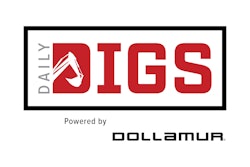Nutritional supplements are more popular than ever, a $32 billion industry. But before selling supplements at your facility, or taking them yourself, it's important to do the research first.
There's no denying that supplementing one's diet with vitamins, protein, essential fatty acids and other products sold in countless grocery, health and online stores can be beneficial. But, with the proliferation of supplements marketed toward those looking to enhance muscle gain or weight loss, there has been increasing scrutiny surrounding the $32 billion industry, although not enough to keep sales projections from doubling by 2021, according to Nutrition Business Journal.
Just recently, federal attorneys moved to seize 1,542 cases of exercise enhancement products containing dimethylamylamine (DMAA) from a GNC warehouse in Leetsdale, Pa. after the FDA found the ingredient found in popular products such as Jack3d to be unsafe.
On April 11, the FDA issued a notice that DMAA "can elevate blood pressure and could lead to cardiovascular problems, including heart attack, shortness of breath and tightening of the chest," especially when combined with caffeine.
Of course this is not the first incident of supplements coming under scrutiny. In 1999, a lawsuit filed against Crunch Fitness claimed a woman died following her trainer's recommendation to take supplements that were inappropriate for her.
In fact, due to concerns over safety and liability, many health clubs have refrained from selling supplements - once a staple for ancillary revenues - and most restrict staff from recommending or even discussing supplements to members.
"Certain supplements should be on the 'allowed for discussion' list, namely protein, amino acids and healthy fats like omegas 3,6 and 9. These are the building blocks that will help promote muscle growth and in turn will bring about change in your client's body composition," says Bill Rundle, a NASM-certified personal trainer who has worked at leading civilian club chains such as FitCorp and Equinox. "Clients should be aware of gimmicky fat burning supplements and be educated on the true usage of things like creatine and pre-workout stimulants. It's better that they learn about supplements from fitness professionals and facilities and not a salesperson touting the product that they make commission on."
While most people can benefit from some kind of supplementation, Kelly Megna, a certified nutrition consultant says that it is vital to start with whole foods and use supplements as just that.
"Supplements definitely have a place for those who are extreme athletes and warfighters. These people not only need more calories, carbohydrates, protein, and fat in general, but they also need a lot more micronutrients, which are the vitamins, minerals and phytochemicals," says Megna, whose practice is based around holistic nutrition. "People think they are benefiting by taking a multivitamin which leads them to believe they don't need to be eating as many whole foods, and this sets them up for trouble in the long term."
It is the task of finding reputable education that is the key to safely supplementing, but is most often the missing ingredient.
"I think there's more controversial and bad advice out there than trustworthy sources. Most companies have only money on their mind and not your health,' says Megna,. "I think there's sound information out there, but people don't know where to look."
To help quell some of this misinformation, the Department of Defense (DoD) as part of its Human Performance Resource Center launched Operation Supplement Safety. The website and outreach campaign, "allows service members and retirees, their families, healthcare providers, and DoD civilians to get the scoop on dietary supplements," according to the organization.
Through this site and community outreach collateral and events, military fitness centers and their staffs can direct members and help educate them on the supplements they are currently - or considering - taking utilizing a trusted government source, as opposed to relying on product labeling and marketing collateral for much of their information.
"I don't think the general population is aware of the risks of supplementing," says Megna. "There can be risks involved when taking any supplement. Many mass-produced supplements are low quality and can have potential risks if not taken properly. I encourage people to always read the label and research the product they are taking."




































